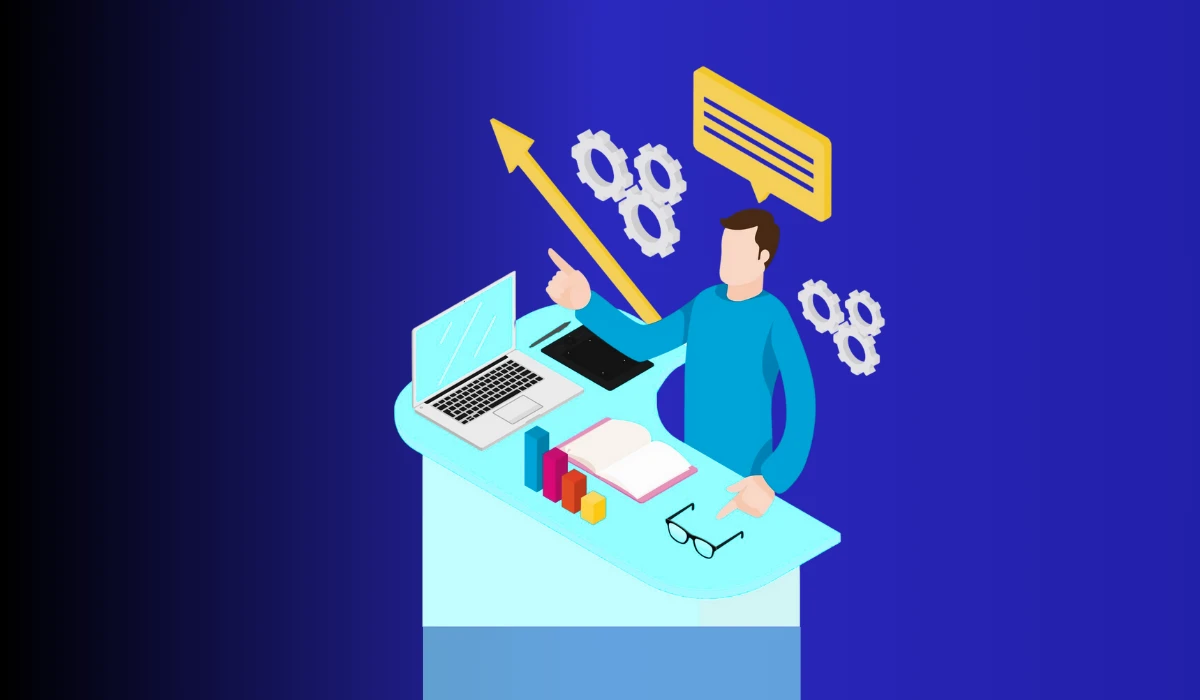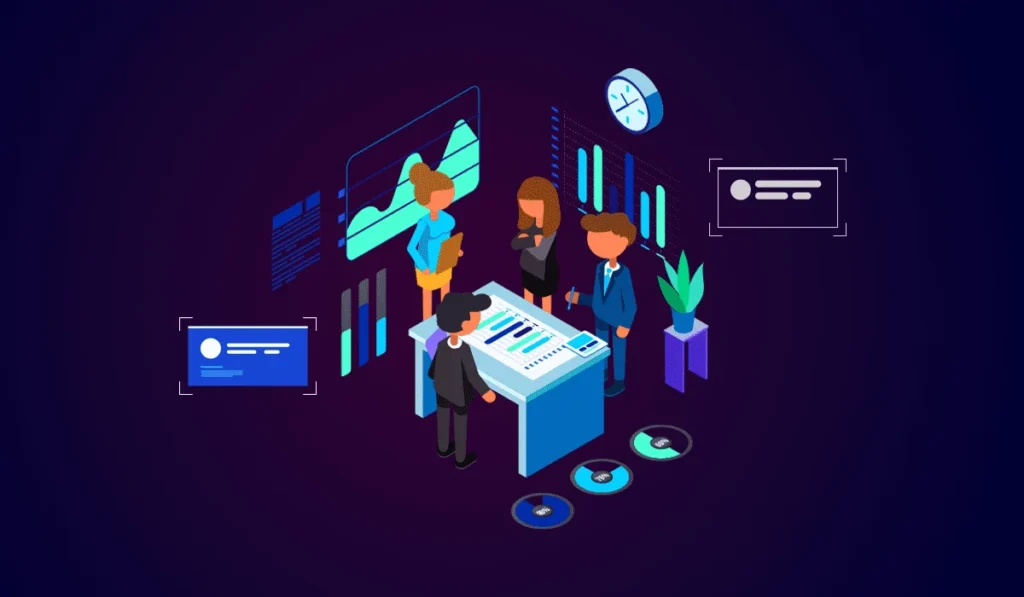Choosing the Right ERP System for your Business is nerve-racking !!!

How ERP Systems Improve Productivity and Reduce Costs

Choosing the Right ERP System for your Business is nerve-racking !!!
The success of a company often relies on making the right choices. The choices can make or break an organization’s efficiency and growth.
One such choice is the selection of the right ERP system. It is like the foundation of your business, the cornerstone upon which your operations, growth, and competitiveness are built.
Like a building’s strong and well-constructed foundation that supports the structure above, the right choice of an ERP system can greatly influence your business’s ability to flourish in the modern marketplace.
With a multitude of options available, making the right choice can be a challenging task.
So, before you make any hasty decisions, let’s explore the factors that you need to consider when choosing the right ERP System for your business.
Content Index:

Choosing the right Enterprise Resource Planning (ERP) system is a key decision for any organization. One of the most important factors to consider in this process is understanding your business needs.
You can start by conducting an internal assessment. This involves evaluating current processes, identifying pain points, and setting specific goals and objectives.
Consider what functions and data are critical to your daily operations, as well as any industry-specific compliance or reporting requirements.
Once you have a comprehensive understanding of your business needs, you can match them with the capabilities of different ERP systems.
Look for a solution that aligns with your specific industry, whether it’s manufacturing, retail, healthcare, or any other sector.
The ERP system should offer modules and features that address your core functions and automate tasks that are time-consuming or error-prone.
When choosing the right ERP system for your business, setting a clear budget is paramount.
Determining your budget ensures that you’re not overspending and that you can meet your financial obligations without strain.
To establish the right budget, consider factors such as the size of your organization, the complexity of your processes, and any customization needs.
It’s crucial to factor in not just the initial software costs but also ongoing expenses like maintenance and support.
A well-thought-out budget will guide you in choosing an ERP system that aligns with your financial capabilities and the long-term growth of your business.
When you and your business embark on the journey to find the right ERP system, it’s necessary to assess your options carefully.
To make an informed choice, evaluate various ERP solutions based on scalability, functionality, cost, and industry compatibility.
Take into consideration your unique business needs and long-term goals. Engage in thorough research, seek expert advice, and consider user reviews.
Understand your requirements and compare the pros and cons of different ERP systems.
Then you and your team can select the one that aligns best with your business objectives, ensuring efficiency and growth.
What will happen if your chosen ERP System doesn’t integrate well with your existing business systems? It could lead to chaos and inefficiency.
A well-planned integration strategy can save time, reduce disruptions, and improve overall efficiency.
Ensure that the chosen ERP system can seamlessly connect with your current software, databases, and hardware. You have to consider factors like data transfer, API support, and customization options before making a decision.
Integration helps to streamline operations, data sharing, and communication between departments. This means smoother workflows, accurate information, and better decision-making.
Compatibility issues can lead to costly delays and other complications like data duplication, data errors, and the need for manual workarounds.
Before choosing an ERP system, assess your current systems, consider your future needs, and choose a solution that offers flexible integration options.
When you’re searching for the right ERP system for your business, it’s imperative to consider the reputation of the vendor and the level of support they offer.
A strong vendor reputation means they have a track record of providing reliable and effective software.
Look for vendors with a history of satisfied customers and a strong presence in your industry.
Support is equally important. Timely and effective support is necessary and it
can be in the form of phone calls or email help.
Good support also means that you will obtain appropriate assistance during troubleshooting issues or getting help with customization.
Choosing a reputable vendor with strong support ensures a smooth ERP implementation, reducing downtime and frustration.
It’s like having a trusted partner for your business growth.
When choosing an ERP system for your business, it’s essential to consider the ease of use for your employees.
An ERP system should simplify their tasks, not complicate them. Look for a system with a user-friendly interface that doesn’t require extensive training.
The ability to quickly locate and access important information is crucial.
A system that integrates seamlessly with existing software and is customizable to your specific needs will make your employees’ work smoother.
Gather feedback from your team throughout the selection process to ensure the chosen ERP system aligns with their needs and comfort.
Prioritizing ease of use will boost productivity and morale, ultimately benefiting your business.
An ERP system manages sensitive company information, like financial data and customer records. To safeguard this data, your chosen system must have strong security measures in place.
Look for ERP providers that follow industry standards and regulations depending on your business type. This ensures your system complies with legal requirements.
Regular updates and maintenance are essential to keep your ERP system secure.
Make sure to train your staff on best practices to prevent data breaches. Your business’s reputation and legal standing depend on keeping data safe and compliant.
Prioritize data security and compliance when selecting an ERP system. It’s essential to protect your business and customer information from potential risks.
Before choosing an ERP system for your business, it’s crucial to request proposals and demos from potential vendors.
This step allows you to evaluate the system’s suitability for your specific needs.
Proposals provide insights into pricing, implementation, and support, helping you make an informed decision.
Demos offer hands-on experience, showcasing the system’s features and usability.
By requesting these, you can assess how well the ERP system aligns with your processes, ensuring seamless integration and improved efficiency in your operations.
Take your time to explore proposals and demos to find the right ERP solution for your business.
The final factors to be considered when finding the right ERP system for your business involve a critical two-step process: decision and implementation.
The decision-making process should include input from key stakeholders, including IT, finance, and operations teams.
It demands meticulous research, evaluation of your business needs, and consideration of available options.
Once a choice is made, effective implementation is equally vital. It requires a well-defined plan, dedicated resources, and training for your staff.
Smooth implementation ensures that the ERP system aligns with your business processes and enhances efficiency.
Deciding and implementing the right ERP system can be a transformative step, streamlining operations, improving data accuracy, and enabling data-driven decisions for sustainable growth.
Choosing the right ERP system for your company is a critical decision with numerous benefits.
By carefully weighing the key factors mentioned above, you can make an informed decision about the right ERP system for your firm.
The ultimate goal is that the chosen system should enable your company to optimize operations, boost productivity, and remain competitive.
If you wish to read more about ERP System in detail feel free to go through our following blogs where we have covered all aspects you need to know!